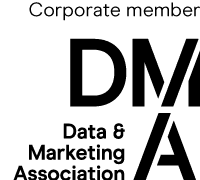The development in internet technology means that businesses who are looking for a product or service to support their organisation no longer heavily rely on sales reps in the initial stages of the customer journey. In fact, 62% of prospects will use a search engine to learn more and, when asked, 57% of sales reps agreed that they are less dependent during the decision-making process compared to 2-3 years ago.
With everything online, why would busy business owners or purchasing managers answer a cold call? When we also consider that when many prospects think of telemarketing the first thoughts that spring to mind are double glazing sales and PPI calls, it’s not surprising that only 3% of them trust sales reps. But, when used well, and conducted correctly, telemarketing can still have a beneficial impact on the growth of your business.
So where can telemarketing help?
With prospects faced with a multitude of offers for similar products/services online, they are increasingly tough to crack and so in order to be successful, telemarketing is best used as part of an integrated sales and marketing campaign. Integration isn’t just a buzzword to throw around, it could be the difference between a dynamic sales pipeline and a static one.
By combining telemarketing with tactical sales and marketing activity, such as email marketing, direct mail, appointment setting, etc, you will be in a better place to build meaningful relationships with prospects. Prospects value interaction now more than ever, the traditional hard sales tactics don’t have a place in the sales industry today. Prospects are looking for someone to build rapport and guide them through the sales process as a trusted advisor, as opposed to a cold caller offering a hard sell.
It all boils down to demonstrating that you know your customer and that your call is there to help them and nurture a relationship. In many B2B industries, a prospect may require a demo or an appointment for further explanation, by having this as an option within your integrated telemarketing campaign, you will be able to better understand the needs of your lead and decide quickly whether they are in fact a qualified lead. 50% of your prospects aren’t actually a good fit for your product or service, so it is important that you use multiple touch points to find out as much about your prospects as you can.
With 9 in 10 companies using 2 or more lead enrichment tools, can you really afford to be the one that doesn’t?
At Air, we often talk about the ‘magic mix’ of sales and marketing and, working closely with our sister company Roots to Market, we have seen the rewards that an integrated approach can have for a whole range of B2B clients.
To find out more about our integrated telemarketing campaigns, get in touch today. Call 0345 241 3038 or email: contact@air-marketing.co.uk





